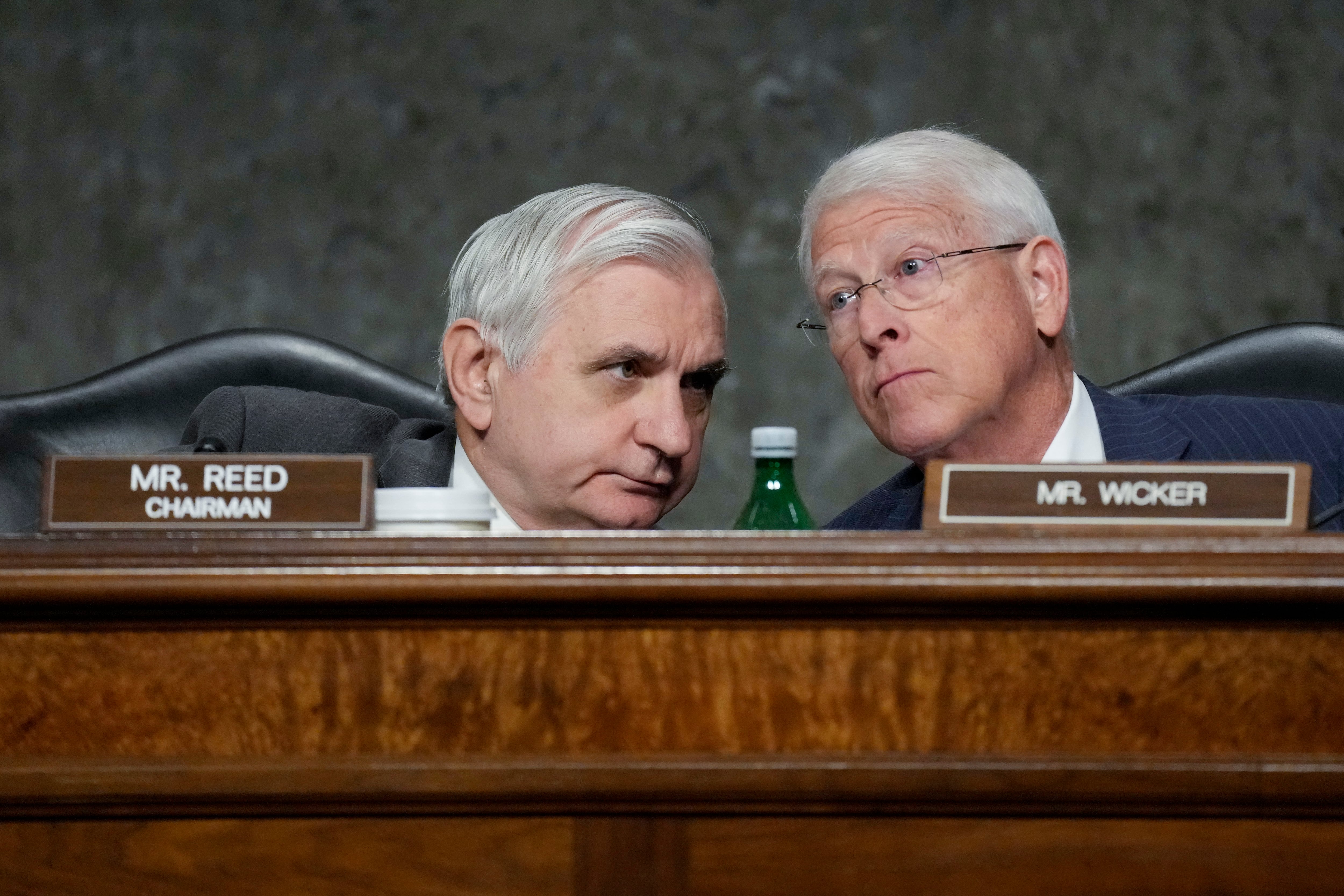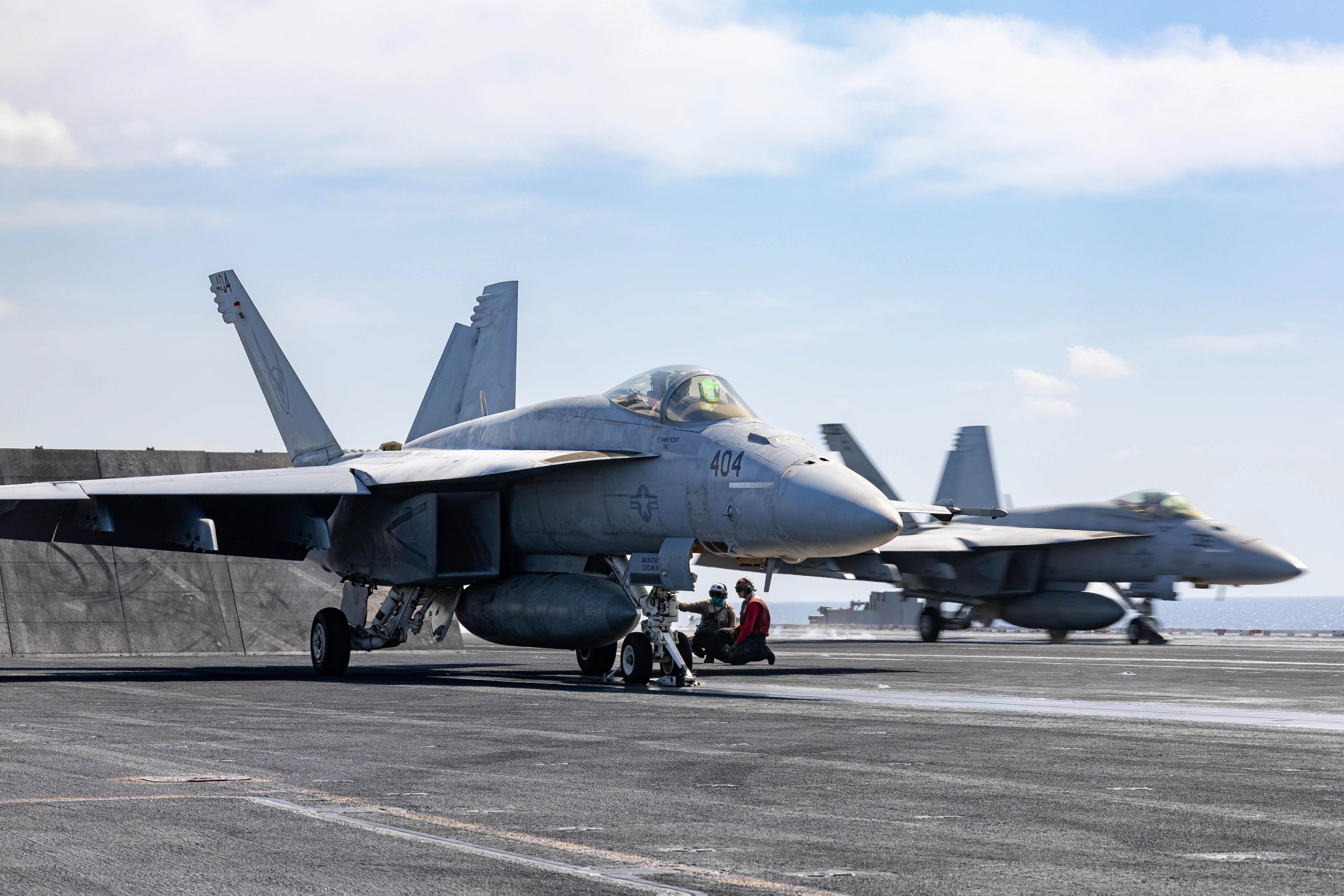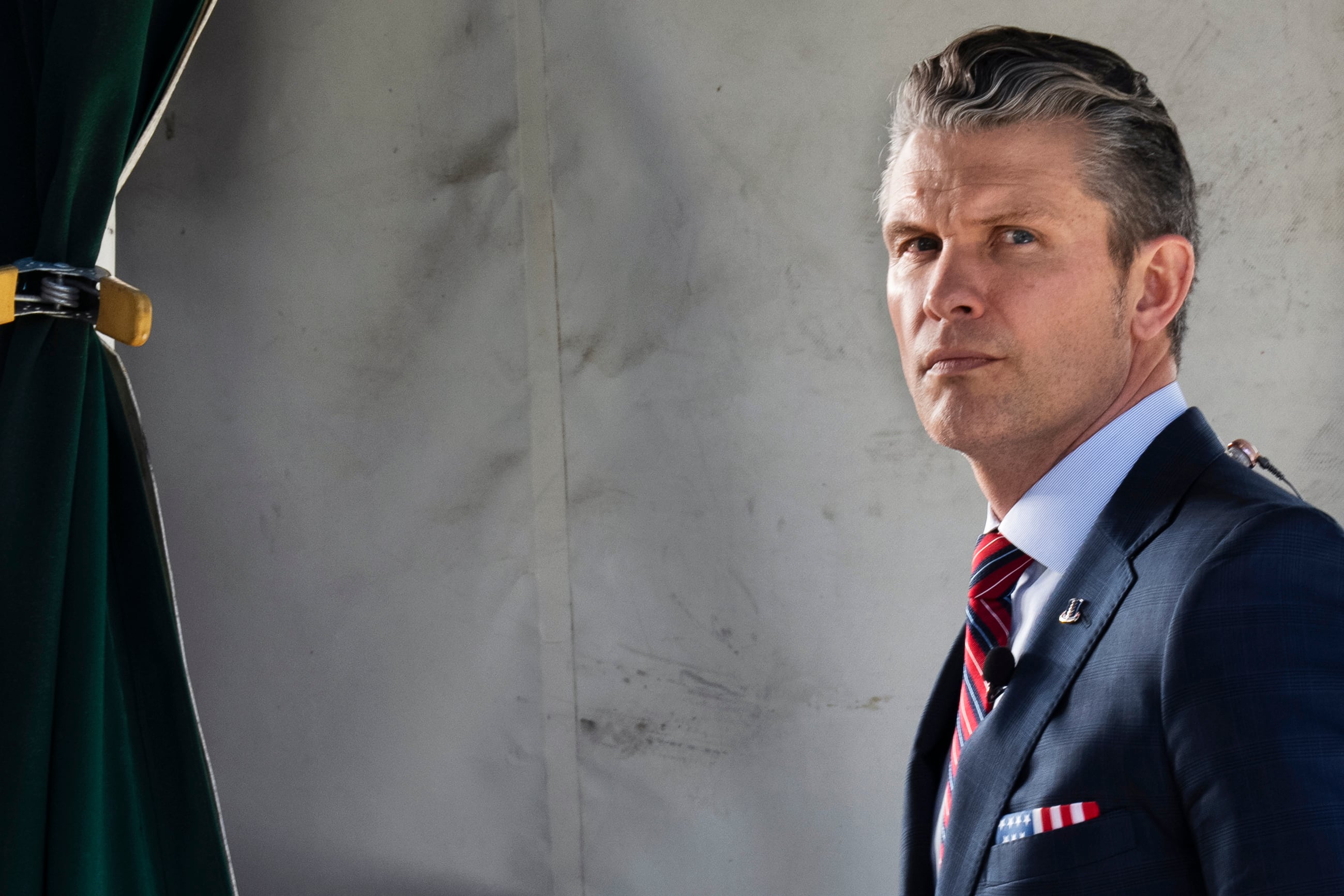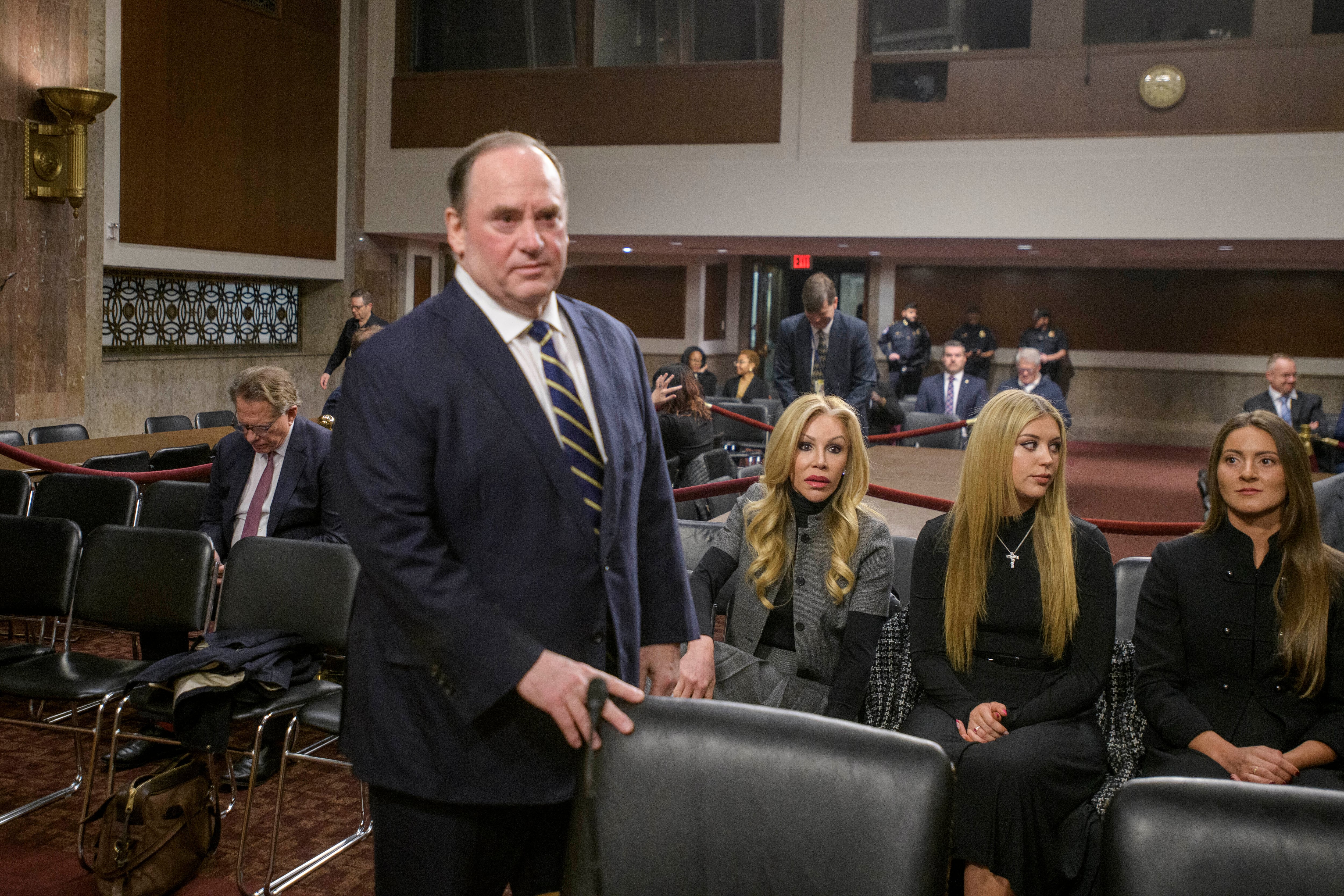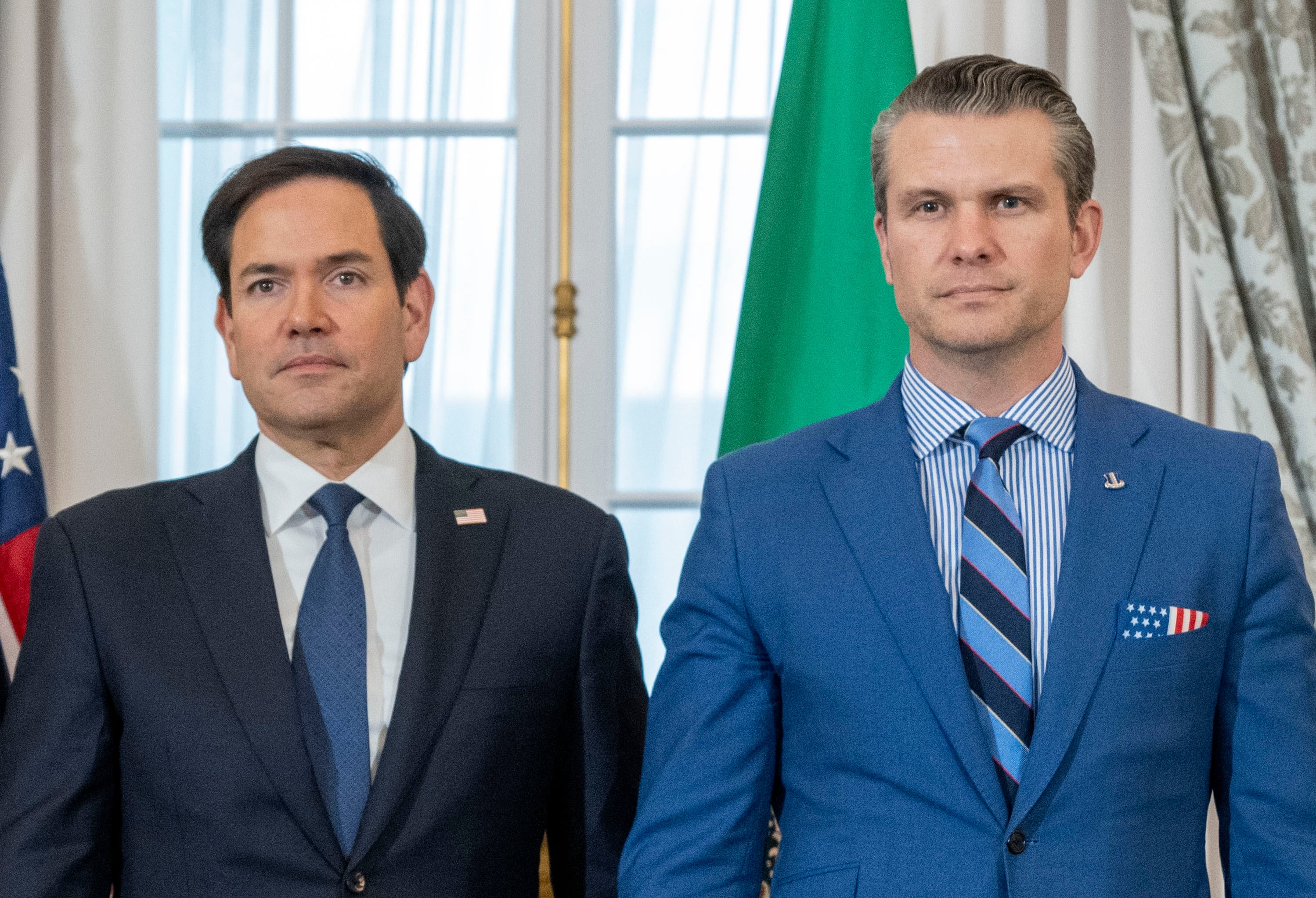WASHINGTON — A blanket hold by a lone U.S. senator on all high-level military promotions could prevent the confirmation of as many as five of the nominees to serve as the president’s most senior military advisers.
Five members of the joint chiefs of staff — including Gen. Mark Milley, the chairman — are required statutorily to leave their posts within the coming months, starting in July. Meanwhile, most of the vice chiefs — many of whom are the nominees or favorites to replace the chiefs — are preparing to assume leadership of the services amid the Senate impasse.
Sen. Tommy Tuberville, R-Ala., is doubling down on his blockade of military confirmations. He told Defense News that the looming vacancies will not prompt him to back down from his ongoing hold on hundreds of military promotions, including the joint chiefs.
“If they’re worried about readiness, they need to go back to their old policy and we’ll get it done,” Tuberville said on Wednesday. “But they’re more worried about social programs than they are about military readiness.”
The senator imposed his blockade in February to protest the Pentagon’s new policy that provides leave time for troops to travel to receive abortion services if they’re stationed in states where it’s now illegal.
The first service chief vacancy will occur when Marine Corps Commandant Gen. David Berger steps down on July 10, commencing a steady stream of exits from the joint chiefs through October. Army Chief of Staff Gen. James McConville must step down next on August 8, followed by Chief of Naval Operations Admiral Mike Gilday shortly after on August 21.
President Joe Biden nominated Air Force Chief of Staff Gen. CQ Brown as the next joint chiefs chairman, replacing Milley, who must depart by early October, and creating another opening at the top of the Air Force.
“There’s no playbook for this,” Arnold Punaro, a former staff director on the Senate Armed Services Committee, said in an interview with Defense News. “This is really a time for regular order, and not the chaos and uncertainty that we see in the system right now.”
The tumult sends a terrible message about the seriousness with which the United States takes its military promotion process, he said.
“It sends a sign of weakness to the rest of the world, that we can’t get our work done on time, and that we’re involved in political chaos,” Punaro said. “This has nothing to do with the individuals involved. We want the young officers, and up-and-coming commanders to see that the military promotion system is based on merit and [who is] best qualified.”
The Senate typically confirms noncontroversial military nominees, including the joint chiefs, using expedited floor procedures via unanimous consent. But any individual senator can block a unanimous consent request, allowing Tuberville to force the Senate to move through numerous procedural votes on each individual nominee.
“All they’ve got to do is put it on the floor and vote for it,” Tuberville told Defense News. “I’ll vote for it.”
Tuberville’s hold would require several weeks of limited Senate floor time to confirm the five joint chiefs nominees alone. Tuberville’s blockade is also holding up more than 220 flag and general officer promotions, which would take an additional several months of scarce floor time if the Senate did nothing but confirm military nominees. The Senate expects to receive hundreds more military nominees in the coming months.
Democratic leaders appear reluctant to use valuable floor time to confirm otherwise noncontroversial nominees and worry that doing so will encourage other senators to block military promotions in order to extract policy concessions.
“The Senate cannot encourage this behavior by handing out rewards for holding up hundreds of nominees,” Sen. Elizabeth Warren, D-Mass., who chairs the military personnel panel, told Defense News.
Senate Majority Leader Chuck Schumer, D-N.Y., repeatedly declined to commit to scheduling floor votes for the joint chiefs nominees when pressed by reporters at a Wednesday press conference.
“What Sen. Tuberville has done is just awful,” Schumer told Defense News. “We believe that Republican senators, if they care about national security, should be putting pressure on him to release the holds.”
Senate Minority Leader Mitch McConnell, R-Ky., said last month that he disagrees with Tuberville’s military holds.
And Sen. John Cornyn, R-Texas, told Defense News he hoped the issue could be resolved with a vote on the Pentagon’s abortion policy in the fiscal 2024 National Defense Authorization Act– a suggestion that Tuberville shot down.
“I don’t want to put it in the NDAA and then hold it up because you’re going to have people that will be against it,” Tuberville told Defense News. “I’d rather have the Defense Department draw something up, send it over here and let’s vote on it, stand-alone.”
What happens next?
The fact that the same nominees tapped to lead the services will fill in for the vacancies in their capacity as the number two officer provides the Senate with little immediate incentive to resolve the impasse.
Punaro said vice chiefs would step in and perform those duties to keep the services running on a day-to-day basis. Similarly, Vice Chairman of the Joint Chiefs of Staff Adm. Christopher Grady would temporarily perform the duties of chairman if Brown is not confirmed by the beginning of October.
Delaying the start of new chiefs’ tenures hinders their ability to start making their desired changes to their services, he said.
Gen. Eric Smith, the Marines’ No. 2 officer and Biden’s nominee for commandant, is scheduled for a confirmation hearing on Tuesday. Given Smith’s current role as assistant commandant, the Marines are preparing for Smith to perform the commandant’s duties when Berger leaves on July 10 even if the Senate has not confirmed him by then.
The confirmation hearings for the other joint chiefs nominees, including Brown, are slated for July.
That includes Army vice chief Gen. Randy George to replace McConville. Biden has yet to nominate a new Chief of Naval Operations, but Navy vice chief Admiral Lisa Franchetti is widely considered the favorite for the position.
And of course, Biden will have to nominate a new Air Force chief of staff to replace Brown, with current Air Force vice chief Gen. David Allvin considered the frontrunner.
Senate Armed Services Chairman Jack Reed, D-R.I., told Defense News “It would be absolutely irresponsible” not to have a congressionally confirmed service chief.
Senators have held up votes on noncontroversial nominees more frequently in recent years. For instance, Sen. Josh Hawley, R-Mo., imposed a blanket hold on all Defense Department civilian nominations for more than a year.
They target military nominees less frequently. Sen. Tammy Duckworth, D-Ill., was the last senator to do so in 2020. Her hold lasted less than two weeks before she lifted it. By contrast, Tuberville’s hold has lasted more than three months with no end in sight.
“What goes around comes around,” Reed told Defense News. “If basically this succeeds, then the next two years from now someone who wants an assault weapons ban will say ‘gee, I’ll just hold up all the generals.”
Jen Judson contributed to this report.
Bryant Harris is the Congress reporter for Defense News. He has covered U.S. foreign policy, national security, international affairs and politics in Washington since 2014. He has also written for Foreign Policy, Al-Monitor, Al Jazeera English and IPS News.
Stephen Losey is the air warfare reporter for Defense News. He previously covered leadership and personnel issues at Air Force Times, and the Pentagon, special operations and air warfare at Military.com. He has traveled to the Middle East to cover U.S. Air Force operations.
Megan Eckstein is the naval warfare reporter at Defense News. She has covered military news since 2009, with a focus on U.S. Navy and Marine Corps operations, acquisition programs and budgets. She has reported from four geographic fleets and is happiest when she’s filing stories from a ship. Megan is a University of Maryland alumna.


